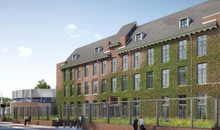
 Flash News
Flash News
Video/ Kodrat e Dukatit përfshihen nga flakët, zjarri përhapet me shpejtësi mbi fshat
Tragjedi në Teksas: 59 të vdekur dhe 27 vajza ende të zhdukura pas përmbytjeve shkatërruese
VIDEO/ Zbardhet përleshja mes bandave në Greqi, 12 të arrestuar, mes tyre edhe shqiptarë
Jepte para me fajde dhe kanoste njerëzit, arrestohet nënkomisari në Elbasan (EMRI)
EMRI/ Drogë dhe armë pa leje, arrestohet i riu në Durrës, nën hetim bashkëpunëtori
Russian influence in Albania/ It is usual for governments to try to brandmark their opponents as foreign agents
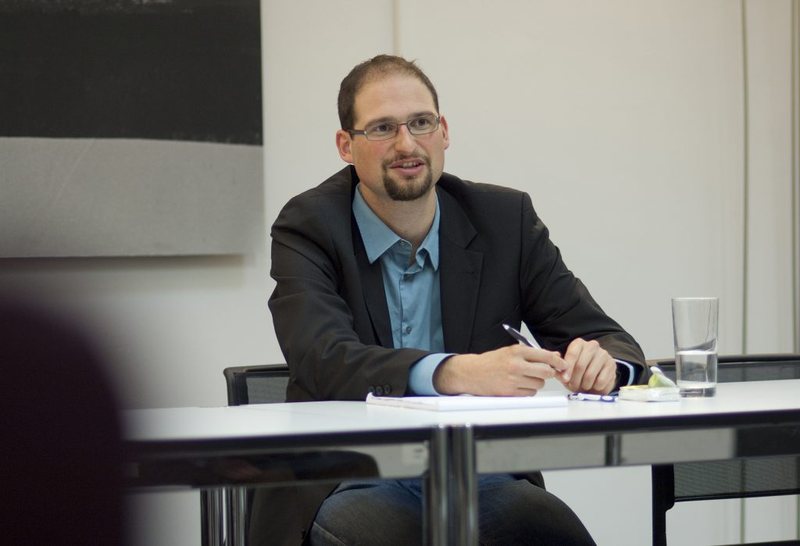
Interview by Liridon Cecja/ Politiko.al
Daniel Bochsler is a Professor of Political Science and Nationalism Studies at Central European University (CEU) in Budapest and at the University of Belgrade. He holds a Ph.D. in Politica Science from the University of Geneva and speaks nine languages. He has written numerous articles and books on the issues concerning Eastern and Central Europe.
Mr. Bochsler, as I am sure you know, it has been two months now since, in Albania, Montenegro and Serbia opposition parties are protesting against governments. Do you find any similarities in their actions?
In my understanding, in these cases, plus in Bosnia and Herzegovina (protests "Pravda za Davida" in Banja Luka), the main motor of the protests are citizens, who are angry with the ruling parties, rather than the opposition parties. To some extent, opposition parties support the protests, help to organize, or try to capitalize on them.
All four countries offer only limited space to issue discontent: for instance, media are only partly free, parliaments and courts are under control of the ruling parties rather than serving the public debate and serving justice. The ruling parties, and economic networks connected to them, widely benefit from an abuse of power. Without properly functioning democratic institutions, protests allow citizens to issue their grievances.
In Albania, the government thinks that Russia influences the opposition in order to destabilize the country. What's your opinion, bearing in mind that both countries don't have any historical good ties, compared to Serbia, Macedonia, and Montenegro?
You can hear the same story across the region - also in Hungary or Romania: some voices near the government try to brandmark the protestors as foreign agents. In some of the countries, protestors are allegedly paid by the Kremlin, in others by a Jewish conspiracy - called Soros - or by the CIA. However, citizens do not take to the streets because they are paid, but because they think that they deserve a normal life, free from corruption, and the respect for their democratic rights.
As an expert, Russia basically tends to collaborate more with the oppositions parties or the governments?
Large parts of the population in Serbia, Bosnia, and Herzegovina or Macedonia hope on Russia's strength and influence. However, Putin's muscles are an illusion, which is supported by the images spread in the press, and in some of the cases willingly amplified by the ruling parties. There is some economic collaboration, which is sometimes also used for political aims, but if you look at the numbers - economically, politically, and partly also militarily-, the important player here is the European Union and NATO.
What's in store in the future for the region, now that USA and EU seem to be preoccupied with their own internal disputes?
EU leaders have lost much of their enthusiasm. Internal struggles within the EU, after the financial crisis, but also stalled reforms in the region, have lead to an overly pragmatic approach to the region, where the EU has largely lost its democratic compass. However, the recent breakthrough between the new government in Macedonia, and its partners in Greece have turned this page again. The EU could learn from this that it is much better to collaborate with pro-democratic forces in the region, rather than with autocrats.
Të fundit


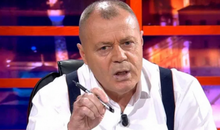
Musk me parti politike, Nano: Reagim emocional pas konfliktit me Trump
6 Korrik 2025, 21:20
Teologu: Pas idesë së Ramës për shtetin bektashi në Shqipëri, fshihet Izraeli
6 Korrik 2025, 20:57
Krahason Parisin, Londrën, New York-un me Vlorën, retorika e Ramës pa standarde
6 Korrik 2025, 20:35
Mjeti del nga rruga, humb jetën shoferi në Kukës
6 Korrik 2025, 20:07
Cila është marrëveshja e mundshme për pengjet në Gaza dhe armëpushimin
6 Korrik 2025, 19:47

Pse Ronaldo mungoi në varrimin e Diogo Jotas, sqaron motra e ikonës së futbollit
6 Korrik 2025, 18:59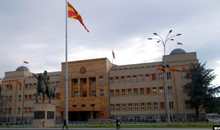
Punësime masive në administratën maqedonase përpara zgjedhjeve
6 Korrik 2025, 18:37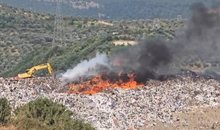
Pas 6 ditësh në flakë e tym toksik, shuhet zjarri në landfillin e Elbasanit
6 Korrik 2025, 18:13

Shqipëria në shitje dhe blerja nga Jared Kushner
6 Korrik 2025, 17:17
Kërcënimi me bombë në Kuvend, reagon Kurti: Luftë aktive hibride nga Serbia
6 Korrik 2025, 16:55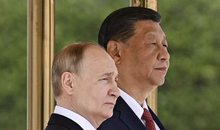

Pas përplasjes me Trump, Musk thotë se po formon një parti të re politike
6 Korrik 2025, 16:14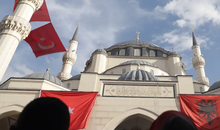
Turqia rrit ndikimin politik në Ballkanin Perëndimor
6 Korrik 2025, 15:48
Dalai Lama mbush 90 vjeç mes adhurimi global
6 Korrik 2025, 15:27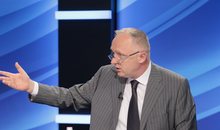
Taksë për beqarët apo për ata që nuk ikin
6 Korrik 2025, 15:04
Toka më larg Diellit, por vapa përvëluese! Pse ndodh kjo?
6 Korrik 2025, 14:51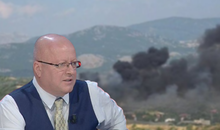
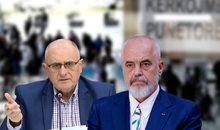
Eksodi i të rinjve dhe karnavalet politike të Ramës!
6 Korrik 2025, 14:16
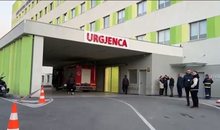
Vapa mbush spitalet! Fluks pacientësh në QSUT, çfarë këshillojnë mjekët
6 Korrik 2025, 13:26
Shqipëria në zjarr, Rama në det (VIDEO)
6 Korrik 2025, 13:04
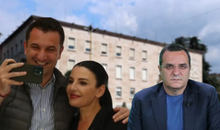
Balluku po bëhet “Veliaj 2”
6 Korrik 2025, 12:16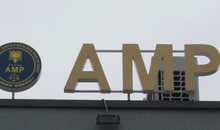
Jepte para me fajde dhe kanoste njerëzit, arrestohet nënkomisari në Elbasan (EMRI)
6 Korrik 2025, 11:50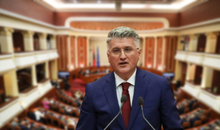
Satira e Gjekmarkajt: Kronika e Kuvendit nis mandatin e dytë! Çfarë vjen pas verës
6 Korrik 2025, 11:38
EMRI/ Drogë dhe armë pa leje, arrestohet i riu në Durrës, nën hetim bashkëpunëtori
6 Korrik 2025, 11:20

Pse nuk duhet të bëjmë dush me ujë të ftohtë gjatë valës së të nxehtit?
6 Korrik 2025, 10:39
Alarmi i zjarreve në vend, 6 vatra ende aktive, si paraqitet situata deri tani
6 Korrik 2025, 10:10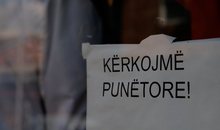
Vendi humb fuqinë punëtore, rënie dramatike e popullsisë në moshë pune
6 Korrik 2025, 09:55
Vietnami dhe SHBA nënshkruajnë një marrëveshje doganore
6 Korrik 2025, 09:39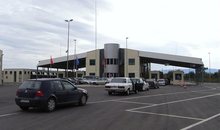
I dënuar në Zvicër për trafik droge, arrestohet në Qafë Thanë maqedonasi (EMRI)
6 Korrik 2025, 09:24
Mbytet në pishinën e familjes 2 vjeçarja në Kosovë
6 Korrik 2025, 09:11
Shqipëria, si laborator i migracionit
6 Korrik 2025, 08:54
Horoskopi për ditën e sotme, çfarë kanë parashikuar yjet për secilën shenjë
6 Korrik 2025, 08:37
Këmbimi valutor 6 korrik, me sa shiten e blihen sot monedhat e huaja
6 Korrik 2025, 08:16
Temperaturat deri në 40 gradë! Parashikimi i motit për ditën e sotme
6 Korrik 2025, 08:00
Posta e mëngjesit/ Me 2 rreshta: Çfarë pati rëndësi dje në Shqipëri
6 Korrik 2025, 07:45
Kur 90 minuta zgjojnë dekada histori: Shqipëri – Serbi, përtej futbollit
5 Korrik 2025, 21:51
Jo vetëm trupin, noti ndihmon edhe trurin
5 Korrik 2025, 21:02
"Kujdes me ujin", Alimehmeti paralajmëron për rreziqet shëndetësore të verës
5 Korrik 2025, 20:39
PSG mund 2-0 Bayernin e Mynihut, shkon në gjysmëfinalen e Botërorit të Klubeve
5 Korrik 2025, 20:19
Klaudia Pepa tregon amanetin e babait: Tha ‘bëhu nënë sa më shpejt’
5 Korrik 2025, 19:50
Përplasen dy automjete në aksin Elbasan-Peqin, lëndohen shoferët
5 Korrik 2025, 19:26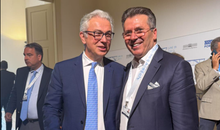

Kuko e PS: Çfarë ka Zelenskyy më shumë se Zegjineja?
5 Korrik 2025, 18:45
Shqiptari rrezikon të mbytet në ujërat e lumit Piave në Itali
5 Korrik 2025, 18:22
Paqe fiskale, por me kosto
5 Korrik 2025, 18:00
Evazioni fiskal i ‘Bankers’, lihet në burg CEO kinez dhe ish-drejtori
5 Korrik 2025, 17:39
Kyle Walker i bashkohet klubit anglez me kontratë dyvjeçare
5 Korrik 2025, 17:20
Përplasen dy makina në aksin Sarandë-Delvinë, 4 të plagosur
5 Korrik 2025, 17:05
Gjesti prekës! Liverpool do t’i paguajë rrogën familjes së Jota-s deri në vitin 2027
5 Korrik 2025, 16:45
Shenjat e horoskopit që tradhtojnë më shpesh
5 Korrik 2025, 16:25

“I kërkova unë shkarkimet”, Dredha tenton të zbutë 'goditjen' e Ramës në Vlorë
5 Korrik 2025, 15:48
Kërcënimi me bombë në Kuvend, prokurori: Ishte gënjeshtër
5 Korrik 2025, 15:22
Lëvizte me thikë në dorë në shëtitoren e Sarandës, procedohet penalisht italiani
5 Korrik 2025, 15:04
Bardhi: Rinumërimi nxori në sipërfaqe sa e pangopur në vjedhje është Zeqine Balluku
5 Korrik 2025, 14:44
Plagosje me thikë në rrugën dytësore Tiranë-Durrës, autori në kërkim
5 Korrik 2025, 14:37
Lot dhe dhimbje, përcillet për në banesën e fundit Diogo Jota
5 Korrik 2025, 14:21
Suksesi nis nga vetja! Mënyra të thjeshta për të investuar në zhvillimin personal
5 Korrik 2025, 13:58
Iu gjetën në banesë armë zjarri pa leje, arrestohet 50-vjeçari në Lushnje
5 Korrik 2025, 13:43

Gjykata e Tiranës lë në burg Skerdi Sinën
5 Korrik 2025, 12:59
Laboratori i kokainës në Greqi, ja kush ishin shqiptarët e arrestuar dhe në kërkim
5 Korrik 2025, 12:40
Drejtësi me regji/ Vangjeli: SPAK nuk heton asnjë skandal ku është i përfshirë Rama
5 Korrik 2025, 12:22
Berisha uron bashkëshorten për ditëlindjen: Liri, hyjnia tokësore e jetës sonë!
5 Korrik 2025, 12:07

“Vullneti i popullit” dhe ironia e dorëheqjeve të komanduar
5 Korrik 2025, 11:32
Rreziku i mbytjeve gjatë verës: Si ta shijoni ujin pa rrezikuar jetën
5 Korrik 2025, 11:20
Situata e zjarreve në vend, në 24 orë u raportuan 16 vatra, 4 ende aktive
5 Korrik 2025, 11:07

Sëmundjet që përhapen nga mushkonjat janë një problem në rritje në Evropë
5 Korrik 2025, 10:44
Skema mashtruese/ Dalin sot para gjykatës drejtuesit e kompanisë “Bankers”
5 Korrik 2025, 10:27


Arrestohet në Turqi një nga kriminelët më të rrezikshëm dhe të kërkuar në Suedi
5 Korrik 2025, 09:38
Këmbimi valutor/ Me sa blihen dhe shiten sot monedhat e huaja
5 Korrik 2025, 09:18

"Mos u ndikoni nga opinioni i të tjerëve", horoskopi për ditën e sotme
5 Korrik 2025, 08:40

Posta e mëngjesit/ Me 2 rreshta: Çfarë pati rëndësi dje në Shqipëri
5 Korrik 2025, 08:02
Fuga ngre alarmin: Civilizimi i qytetërimit në Shqipëri po bie!
4 Korrik 2025, 22:54
Trump thotë se është gati të rrisë tarifat deri në 70% për disa vende
4 Korrik 2025, 22:35
Tre shenjat e zodiakut që do ‘pasurohen’ në Korrik
4 Korrik 2025, 22:05
Lufta në Gaza, Hamasi pranon propozimin e SHBA-së për armëpushim 60-ditor
4 Korrik 2025, 21:50
Autokracia në Shqipëri, Fuga: Qeverisja ka dalë jashtë kontrollit
4 Korrik 2025, 21:40
Meta: Bujqësia me kredi, mashtrimi i ri!
4 Korrik 2025, 21:26



"Skandali me Bankers si inceneratorët'/ Bushati: Bashkëpunim i korruptuar shtetëror!
4 Korrik 2025, 20:24
Përfundon pa ndryshime rinumërimi i votave në Durrës
4 Korrik 2025, 20:12
Shpërthen pika e karburantit në Romë, 25 të plagosur (VIDEO)
4 Korrik 2025, 20:00

